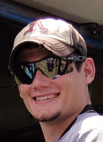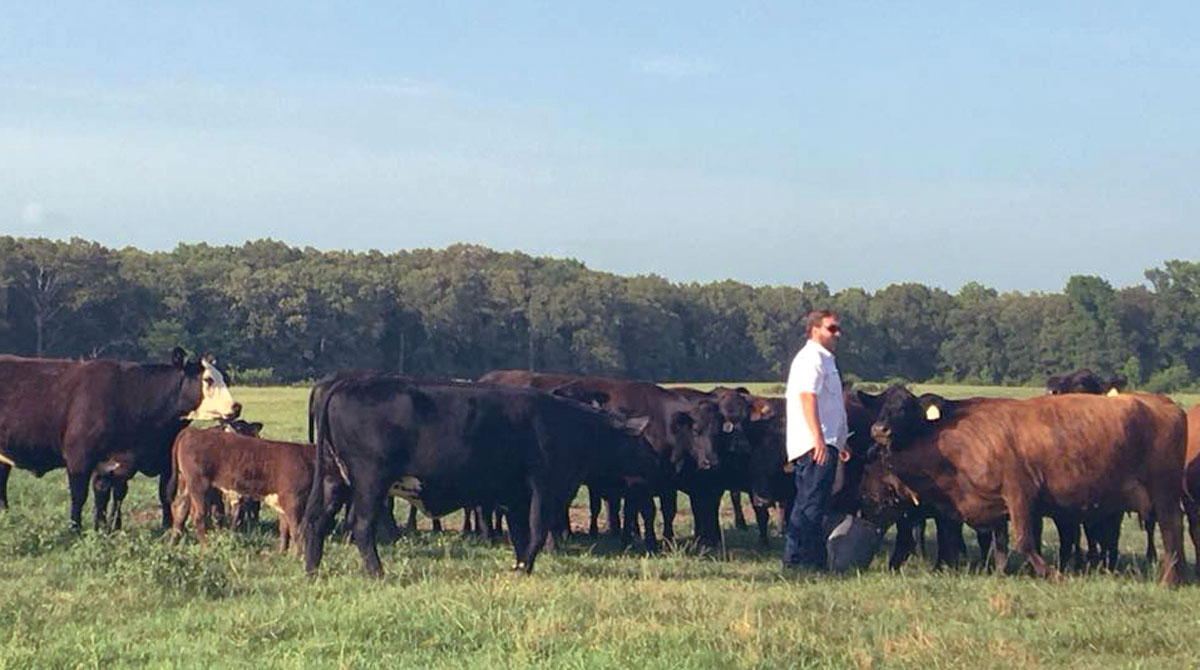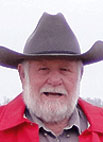 Recreational accidents can have tragic results. If the injured person is a farmer, the results can be especially devastating. However, advances in programming and technology have become available to help wheelchair bound farmers remain productive.
Recreational accidents can have tragic results. If the injured person is a farmer, the results can be especially devastating. However, advances in programming and technology have become available to help wheelchair bound farmers remain productive.
In July of 2011, Jacob Grigg, then 20, was living on his own near his father’s ranch. Jacob was working for Butterball while helping his father.
Jacob went four wheeling in Oklahoma with some friends and broke his back when he went off of the sandbar. Jacob said, “I rode crazy around here too and had some minor incidents but nothing like what happened in Oklahoma.” As a result of the accident, Jacob was paralyzed from the chest down and needed to move back home with special additions intended to accommodate all of his needs. Jacob said, “I always planned on staying on the farm. I tried college and had an in-town job for Butterball when I got hurt, but I had already decided I also wanted to farm with my dad.”
Jacob’s prolonged stay in two different hospitals with several surgeries and intense rehabilitation had a strong impact on the young man and his future. One aspect was instilling a belief in Jacob that the limits on what he could do were not as restrictive as most people would think.
During his stay at a hospital in Colorado, therapists even had Jacob in a kayak with pontoons on the side. Another aspect of the impact on Jacob’s future occurred while his father, Dennis Grigg, was staying with him during the prolonged stay in Colorado. There Jacob’s father learned about AgrAbility, a national program developed from the 1990 Farm Bill. The purpose of the program is to educate disabled farmers and to plug them into networking systems for help in locating and financing resources that help disabled agriculturalists become viable, productive people in their chosen agricultural fields.
As a result of this networking, Jacob has modified controls for a truck and three different tractors. He also has systems that allow him to get into and leave his truck on his own while placing the wheelchair securely in the back of the truck when he is driving. A different lift system also provides access to the three tractors via a handheld remote control (visit the ‘Extended Stories’ section at ozarksfn.com for pictures of Jacob’s lift system). As a result, Jacob can cut, bale and stack hay by himself. He also feels he is able to help sort cattle though, according to Jacob, the family is more hesitant. Jacob explained, “I’m comfortable working around the head gate, tagging, giving shots and sorting cattle into the right pens. The only problem is that, manure gets on the wheels, which is a mess.”
Since the accident and returning home, Jacob has fished and hunted extensively and maintained close ties with the people around him. Jacob said, “I still get nervous around people outside my bubble, but I want to live on my own again when the time is right. Even though they have a long way to go with research, I’m only 21 and I’m sure a cure will come along.”
The Grigg Farm, in Kingston, Ark., is a family operation owned by Dennis Grigg and his brother, Dale. It covers about 600 acres with approximately 150 Limousin/Angus cross momma cows and 10 bulls. They sell fall and spring calves but keep back heifers in order to increase the herd size. They run a weaning operation and feed the calves 14 percent protein pellets for 60-90 days until they are around 700 pounds when they are sold in Green Forest, Ark.







